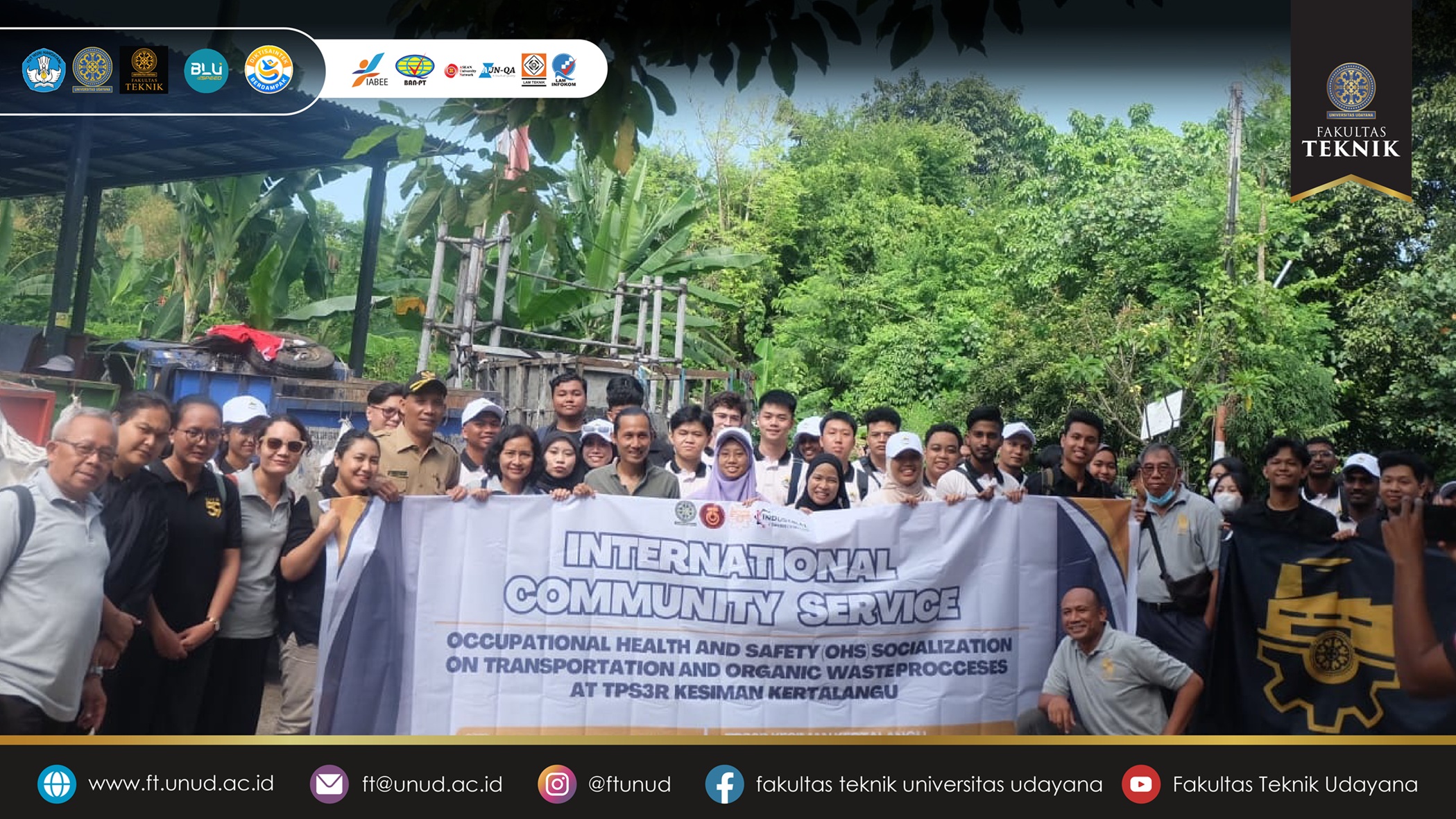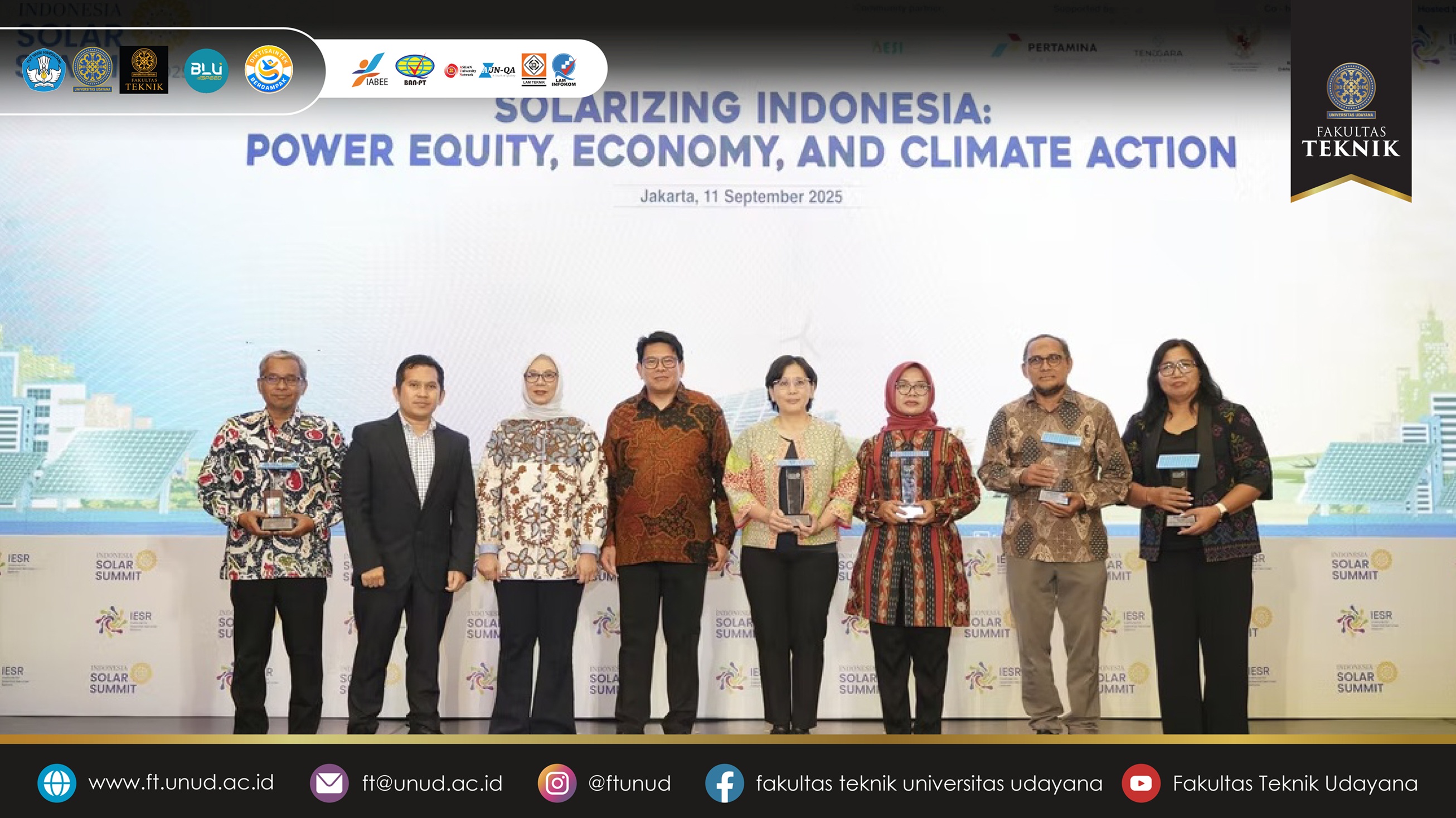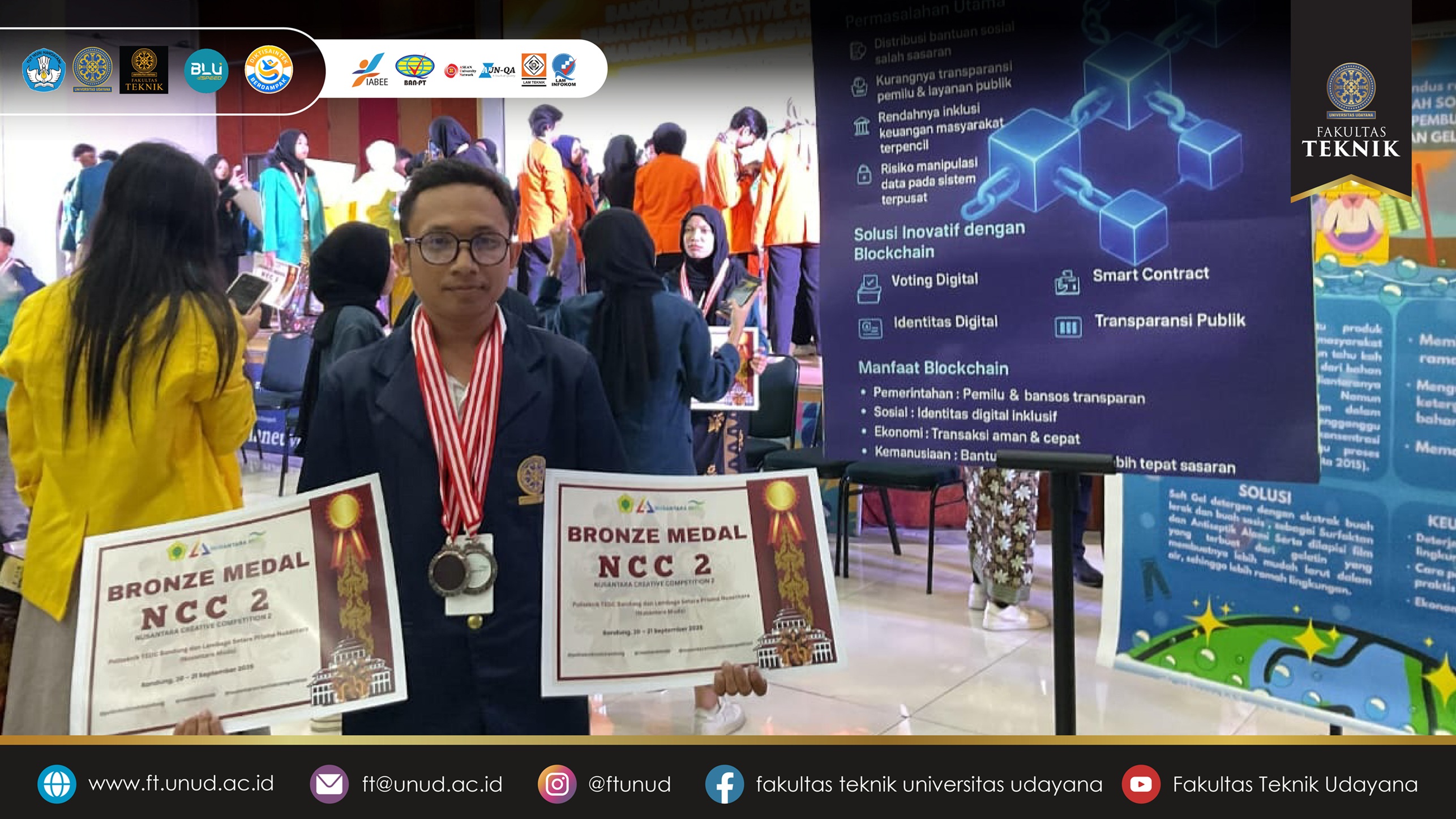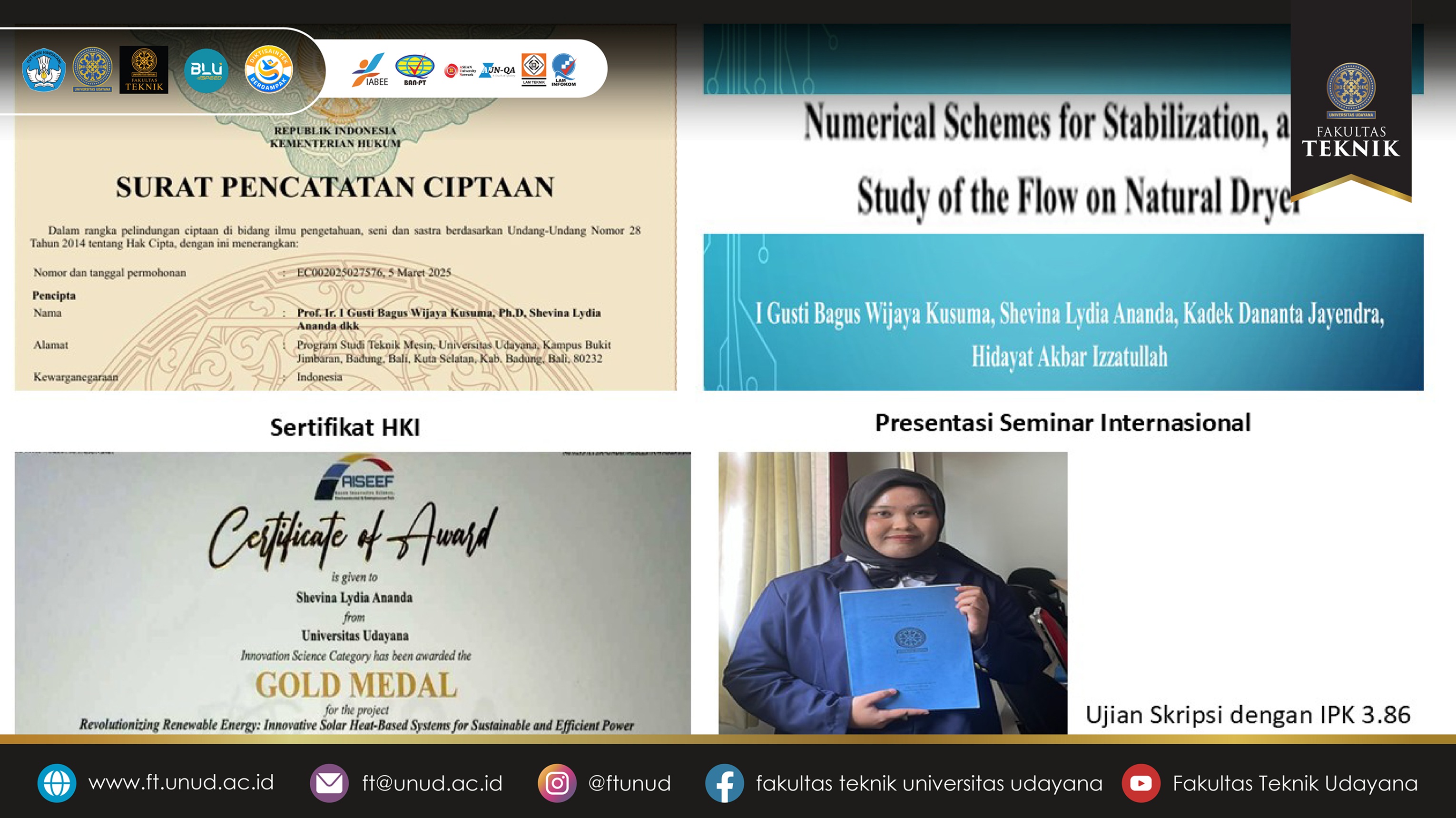Comparative Study of Industrial Engineering at Udayana University and Universiti Teknologi Malaysia: Socialization of Occupational Safety and Health (K3) and Organic Waste Management at the 3R Landfill in Kesiman Kertalangu
Denpasar, August 4, 2025 – The Industrial Engineering Study Program, Faculty of Engineering, Udayana University, collaborated with Universiti Teknologi Malaysia (UTM) in a comparative study and community service activity, including education, direct outreach, and the distribution of attributes to workers and the community at the 3R Landfill in Kesiman Kertalangu, East Denpasar. This activity focused on the implementation of Occupational Safety and Health (K3) and organic waste management in the local area.
This activity aims to increase worker and community understanding of Occupational Safety and Health (OHS) in the transportation and processing of organic waste, while also introducing processing technology based on the Reduce, Reuse, and Recycle (3R) concept. This includes field surveys, observations of TPS operational processes, and hands-on waste management practices involving students in learning about the transportation process using mochi (mochi) and trucks, sorting, and processing organic and dry waste using maggot technology (BSF) and a gibrig machine to effectively produce compost.
In addition to the field practice, students from Industrial Engineering at Udayana University and Universiti Teknologi Malaysia also held discussions with 3R TPS managers and local residents, while also providing outreach on the importance of implementing OHS. On this occasion, the team also presented occupational safety attributes to the workers. The village Waste Education and Monitoring (PEPS) team assisted to ensure waste sorting was carried out at home as a preventative measure to maintain environmental quality.
This activity successfully raised awareness of the importance of implementing OHS in the workplace, while fostering an understanding that simple technologies like maggots and gibrigs can provide significant benefits in reducing waste volume, producing economically valuable products like organic fertilizer, and supporting environmental sustainability. Through this activity, workers and the community were further encouraged to implement OHS to create a safe, productive, and sustainable work environment. Furthermore, this activity strengthened the spirit of academic collaboration between Indonesia and Malaysia, fostering cultural and scientific exchanges that benefit both parties.
"This collaboration provides a space for students to not only learn theory but also contribute directly to society and build a sustainable international network to achieve a clean and healthy environment."




UDAYANA UNIVERSITY